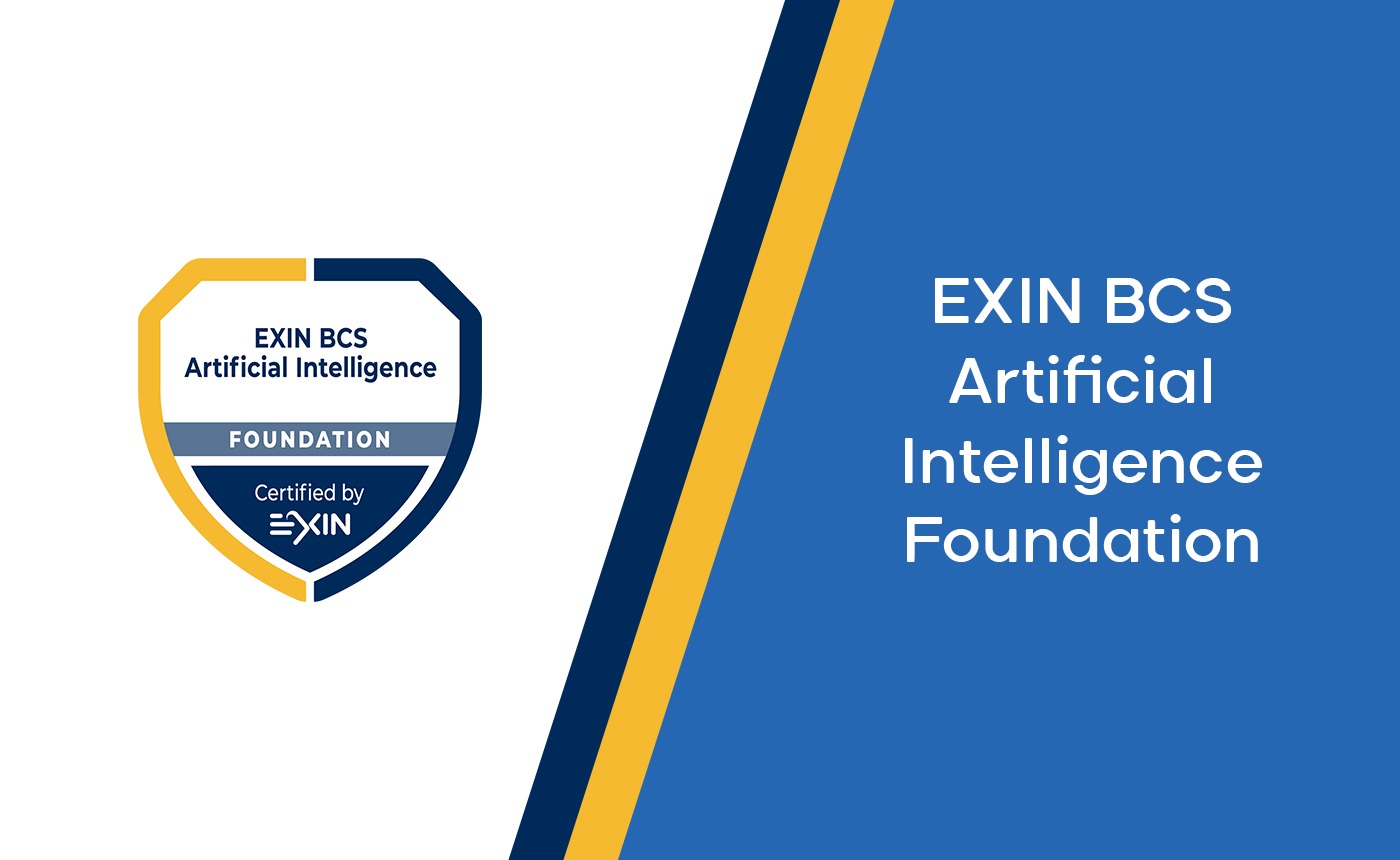EXIN BCS Artificial Intelligence Foundation

About Course
OVERVIEW
Artificial Intelligence (AI) has recently surged in popularity, becoming part of everyday thinking, transforming industries, and reshaping the future of technology. It revolutionizes how systems learn from experience and mimic human intelligence. The EXIN BCS Artificial Intelligence Foundation equips candidates with knowledge of key AI techniques, their use in the real world and their impact on our lives.
This certification explores the historical journey of AI, the advantages and challenges of ethical and sustainable AI, the key enablers of AI including data, and the future interplay between AI and human roles in the workplace. Building on the foundational concepts introduced in the EXIN BCS Artificial Intelligence Essentials, this certification offers a comprehensive understanding crucial for navigating the rapidly evolving AI landscape.
TARGET AUDIENCE
The EXIN BCS Artificial Intelligence Foundation is suitable for individuals with an interest in exploring the functions and abilities of AI, and how these can be used in an organization.
The following roles could be interested:
➢ Developers.
➢ Project managers.
➢ Product managers.
➢ Chief information officers.
➢ Chief finance officers.
➢ Change practitioners.
➢ Business consultants.
➢ Leaders of people.
DURATION : 3 Days.
CERTIFICATE : EXIN BCS Artificial Intelligence Foundation.
LEARNING OUTCOME
Aims to equip candidates with a comprehensive understanding of AI’s fundamental concepts and its practical applications. Upon completing the course, participants will be able to:
➢ Recognize how AI integrates into ‘Universal Design’ and contributes to the ‘Fourth Industrial Revolution’.
➢ Grasp the concept of intelligent agents, including their types and functionalities.
➢ Articulate the advantages AI offers across various sectors and processes.
➢ Understand the processes involved in data learning, encompassing functionality, software, and hardware aspects.
➢ Appreciate how AI, particularly Machine Learning (ML), fosters collaboration between humans and machines.
➢ Describe an agile, experience-based approach to AI projects.
COURSE OUTLINE
An introduction to AI and historical development.
➢ Key definitions of key AI terms.
➢ Key milestones in the development of AI.
➢ Different types of AI.
➢ Impact of AI on society.
➢ Sustainability measures to help reduce the environmental impact of AI.
Ethical and legal considerations.
➢ Ethical concerns, including bias and privacy, in AI.
➢ The importance of guiding principles in ethical AI development.
➢ Strategies for addressing ethical challenges in AI projects.
➢ The role of regulation in AI.
➢ The process of risk management in AI.
Enablers of AI.
➢ Common examples of AI.
➢ The role of robotics in AI.
➢ Machine learning.
➢ Common machine learning concepts.
➢ Supervised and unsupervised learning
Finding and using data in AI.
➢ Key data terms.
➢ The characteristics of data quality and why it is important in AI.
➢ The risks associated with handling data in AI and how to minimize them.
➢ The purpose and use of big data.
➢ Data visualization techniques and tools.
➢ Key generative AI terms.
➢ The purpose and use of generative AI including large language models (LLMs).
➢ How data is used to train AI in the machine learning process.
Using AI in your organization.
➢ Opportunities for AI in your organization.
➢ The contents and structure of a business case.
➢ Identify and categorize stakeholders relevant to an AI project.
➢ Project management approaches.
➢ Identify the risks, costs and benefits associated with a proposed solution.
➢ The ongoing governance activities required when implementing AI.
Future planning and impact – human plus machine.
➢ The roles and career opportunities presented by AI.
➢ AI uses in the real world.
➢ AI’s impact on society, and the future of AI.
➢ Consciousness and its impact on ethical AI.
